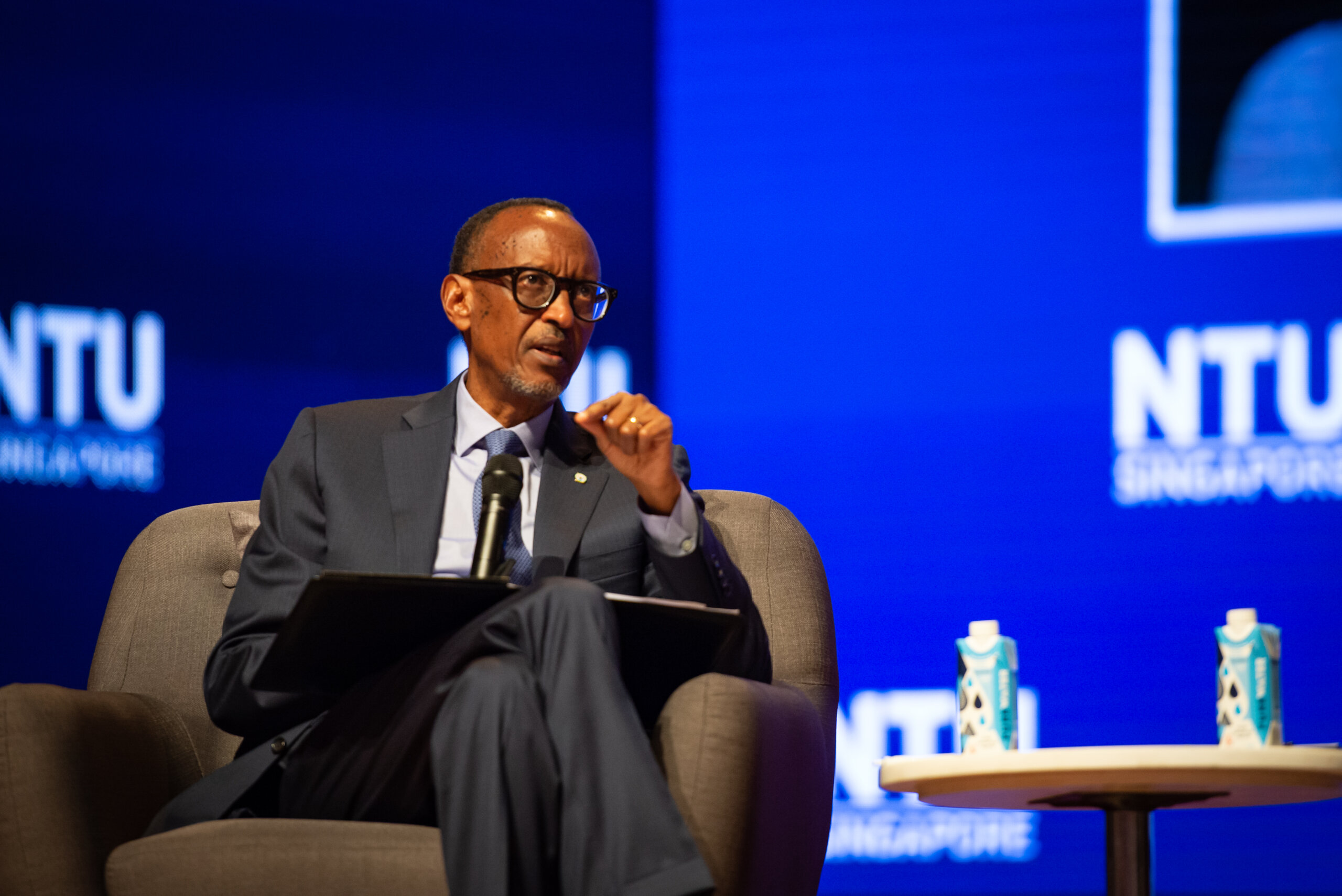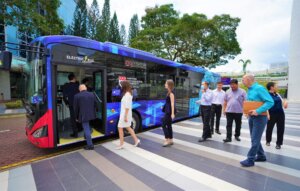Text by Sudhiksha Krishna Kumar
Photo by Eugene Goh
- Rwanda and NTU are working on offering joint fellowships that will be open to Singaporeans, said Rwandan President Paul Kagame.
- The fellowships fall under a previous agreement between NTU and the African nation to collaborate in scientific research, technology, and education programs.
- Mr Kagame’s talk was part of NTU’s Majulah Lecture series, where world and industry leaders are invited to speak on global topics related to Singapore’s future.
Rwanda is set to offer fellowships with Nanyang Technological University (NTU) that would allow Singaporeans to participate in research programs with the central African nation, said Rwanda President Paul Kagame on Friday (Sep 30).
Speaking in a public lecture at the Nanyang Auditorium on Rwanda’s growth, Mr Kagame mentioned the upcoming programs as he highlighted how his government is seeing success by shaping its policies after Singapore’s decisions, such as focusing on investing in technology and people.
“We are enthusiastic about the opportunities that this collaboration will bring up for both Rwanda and Singaporean students and researchers and we intend to make the most of it,” said Mr Kagame.
The Rwandan president did not mention any further details about the fellowships at his lecture.
However, they represent a more concrete result of the June 2021 memorandum of understanding signed by NTU and Rwanda’s Minister of Education Valentine Uwamariya. It promised to “promote cooperation” between both parties in the fields of scientific research, technology, and education.
The 2021 memo had said the partnership would “produce professionals and scholars,” but did not specify any actions to be taken by either Rwanda or NTU.
When asked by Soapbox about the fellowships, an NTU spokesperson said the programs mentioned by Mr Kagame fall under the 2021 memorandum, and did not have more details to share.
Mr Kagame’s talk was part of NTU’s Majulah Lecture series, where world and industry leaders are invited to speak on global topics related to Singapore’s future.
The Rwandan president highlighted how some Singaporean entrepreneurs have already moved their businesses to Rwanda. He added that his country is working toward becoming a vaccine and medicine manufacturing hub — just as Singapore has done.
NTU President Subra Suresh, who moderated the session, said that NTU was pleased to share its experience in education, innovation, digital transformation, and human resource development.
He referenced how Mr Kagame has often said that Rwanda aspires to be the ‘Singapore of Africa’, as the African leader transformed the once war-torn nation of 12 million people into a rapidly developing nation that’s been tough on corruption and attracted billions in foreign investment.
Mr Kagame has risen to international prominence in light of a two-decade economic boom in Rwanda under his leadership. The Rwandan capital, Kigali, has transformed its slums and poor suburbs to create what United Nations Environment Programme head Eric Solheim called the “cleanest city on the planet.”
But Mr Kagame has also been controversial in the West, where critics say he rules Rwanda as an authoritarian. In 2021, a US State Department report accused Mr Kagame’s government of engaging in practices that led to “significant human rights issues,” such as “unlawful or arbitrary killings” and “forced disappearance”.
In 2017, Mr Kagame won a third term as Rwanda’s president with 98.63 per cent of the vote, prompting his opponents to say the landslide victory showed how he stifled opposition and oppressed dissidents.
He has defended himself and his government fiercely, saying his country is proud of its human rights record since the end of its genocide-filled civil war in the early 1990s.
“When it comes to Judgment Day, I will get much better marks than those people who criticise us, when it comes to judging us for what we did in the name of human rights and defence and protection of freedoms,” he said in an interview with The African Report.



